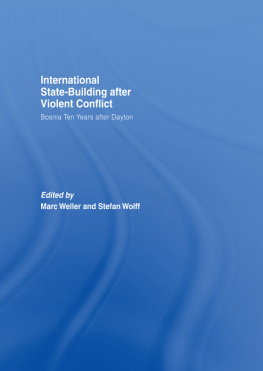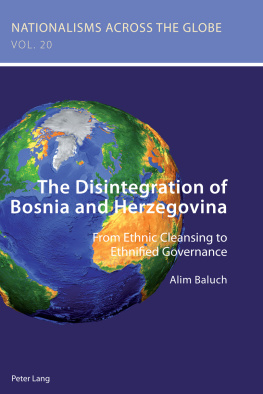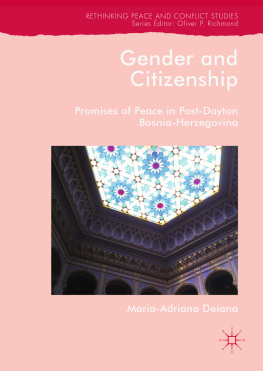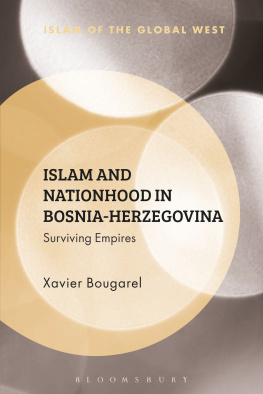RECONSTITUTING SOVEREIGNTY
The International Political Economy of New Regionalisms Series
The International Political Economy of New Regionalisms Series presents innovative analyses of a range of novel regional relations and institutions. Going beyond established, formal, interstate economic organisations, this essential series provides informed interdisciplinary and international research and debate about myriad heterogeneous intermediate level interactions.
Reflective of its cosmopolitan and creative orientation, this series is developed by an international editorial team of established and emerging scholars in both the South and North. It reinforces ongoing networks of analysts in both academia and think-tanks as well as international agencies concerned with micro-, meso- and macro-level regionalisms.
Editorial Board
Timothy M. Shaw, University of London, London
Isidro Morales, Universidad de las Americas - Puebla, Mexico
Maria Nzomo, University of Nairobi, Kenya
Nicola Phillips, University of Warwick, UK
Johan Saravanamuttu, Munk Centre for International Studies, Canada
Fredrik Sderbaum, Gteborgs Universitet, Sweden
Other Titles in the Series
European Union and New Regionalism
Edited by Mario Tel
ISBN 0 7546 1748 3
Crises of Governance in Asia and Africa
Edited by Sandra J. MacLean, Fahimul Quadir and Timothy M. Shaw
ISBN 0 7546 1410 7
South Africas Multilateral Diplomacy and Global Change
Edited by Philip Nel, Ian Taylor and Janis van der Westhuizen
ISBN 0 7546 1653 3
The Politics of Economic Regionalism
David J. Francis
ISBN 0 7546 1519 7
First published 2002 by Ashgate Publishing
Reissued 2018 by Routledge
2 Park Square, Milton Park, Abingdon, Oxon OX14 4RN
711 Third Avenue, New York, NY 10017, USA
Routledge is an imprint of the Taylor & Francis Group, an informa business
Copyright Rory Keane 2002
The author has asserted his moral right under the Copyright, Designs and Patents Act, 1988, to be identified as the author of this work.
All rights reserved. No part of this book may be reprinted or reproduced or utilised in any form or by any electronic, mechanical, or other means, now known or hereafter invented, including photocopying and recording, or in any information storage or retrieval system, without permission in writing from the publishers.
Notice:
Product or corporate names may be trademarks or registered trademarks, and are used only for identification and explanation without intent to infringe.
Publishers Note
The publisher has gone to great lengths to ensure the quality of this reprint but points out that some imperfections in the original copies may be apparent.
Disclaimer
The publisher has made every effort to trace copyright holders and welcomes correspondence from those they have been unable to contact.
A Library of Congress record exists under LC control number:
ISBN 13: 978-1-138-72664-2 (hbk)
ISBN 13: 978-1-315-19128-7 (ebk)
Too often of late has the death of the nation state been preempted. In reality, however, nationalism remains on the rise. Today in the Balkans, regions such as Tetovo, the Sandjak and Mostar remain engulfed in insecurity deriving from the paradigm of nationalism. Heralding the death of the nation state in an academic sense is all very well, replacing it with a unit of governance more in tune with human security is much the greater task. In writing this book, the will to human security conditioned my thought process. Today International Relations as a discipline appears lost. International Relations theory may be beginning to depart from theories, which simply explain the world, but we appear reluctant to create what has not already existed, we lack the imaginative ability to deconstruct in line with need. In essence we destroy ambiguity in the will to clarity. Within this largely theoretical work I celebrate deconstruction in line with need, I accepted the ambiguities that must exist in a world of complexity. I set the agenda of International Relations upon its ability to change the world in line with human security.
Broadly speaking books written on International Relations divide into theoretical and practical works. I promised myself to attempt to bridge such a divide in the writing of this work, as theory without practical application, to put it simply, is too easy. Practical works, however, can too easily become the stuff of real-politik. This book critiques the potential ability and extent to which both post-Dayton Bosnia may be able to provide new and more responsive forms of governance. The case of Bosnia and Herzegovina is interesting insofar as it manifests firstly how nationalism acts as the antithesis to human security. Secondly, the Dayton Peace Accord which brought the war to an end in 1995 warrants research insofar as it creates new forms of institutional framework which mark a departure from the traditional sovereign nation state structure. The architects of Dayton (including Richard Holbrooke), the ethno-nationalist political parties in Bosnia and indeed the International community charged with implementing Dayton, did and still do have as their aim the creation of a archetype-Westphalian nation state.
To date they have failed in that aim, and rather post-Dayton implementation reflects partially functioning sovereign constructs which may serve in time to form the basis of post-nation state governance. Ironically, in this sense, the failure of Dayton to create a nation state has left it potentially more able to respond to the socio-political habitat in Bosnia and Herzegovina.
This book divides into seven chapters. The first two chapters are largely theoretical. I firstly outline what I consider to be the basis of human security. Thereafter I introduce a theoretical model, based upon the reconstitution of sovereignty. Chapter three breaks into two sections and utilizes a genealogical approach so as to uproot the unnaturalness in pursuing a nation state model as a means to human security in the Balkans. Chapters four to seven concentrate upon the Dayton Peace Accord, Dayton implementation and the extent to which Dayton implementation signposts a certain deconstruction of nation state sovereignty. It is evident from this work, that Dayton implementation has prevented the spillover of ethno-nationalism in Bosnia and therefore has prevented another fratricidal ethnic conflict. Neither has the institutional framework created human security however, due to the power of nationalism. Within chapter five the principal practical issues which hold the ability to weaken the strength of nationalism in Bosnia are documented. Chapter six shows that steady, although slow, progress has been made towards creating a more inclusive and somewhat less nationalist Bosnia, based upon the unbundling of sovereignty.
This book is based broadly upon my PhD. Much of the content has also been presented at international conferences in Belgrade, Tehran, Columbia University and Quebec. This work was made possible by the unyielding support and friendship of my PhD supervisor, Dr. Lucian M. Ashworth (University of Limerick). I also wish to thank Dr. Mark Downes (West University Timisaoura), John A. Loonam and Jack Anderson (University of Limerick). In addition, the Department of Government and Society, University of Limerick has always been supportive financially and otherwise. I also wish to thank my current employers, the Civic Education Project (CEP) and the Belgrade Open School for affording me the time to complete this work. Finally, I wish to thank Orla Sheehy for being Orla Sheehy.













